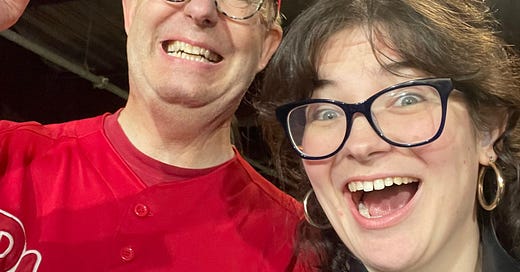non-romance romance, #6: There's Always This Year by Hanif Abdurraqib
how can you not be romantic about bas(k)e(t)ball
Another entry in my Non-Romance Romance series, where I talk about literature/film that is not typically classed as romances with romance as a framework. Now a monthly series! This one is about sports, but also one of the best books I’ve ever read. Happy NBA Playoffs to you all—the best time to be on Twitter and one of the worst times to be a Philadelph…
Keep reading with a 7-day free trial
Subscribe to restorative romance to keep reading this post and get 7 days of free access to the full post archives.



